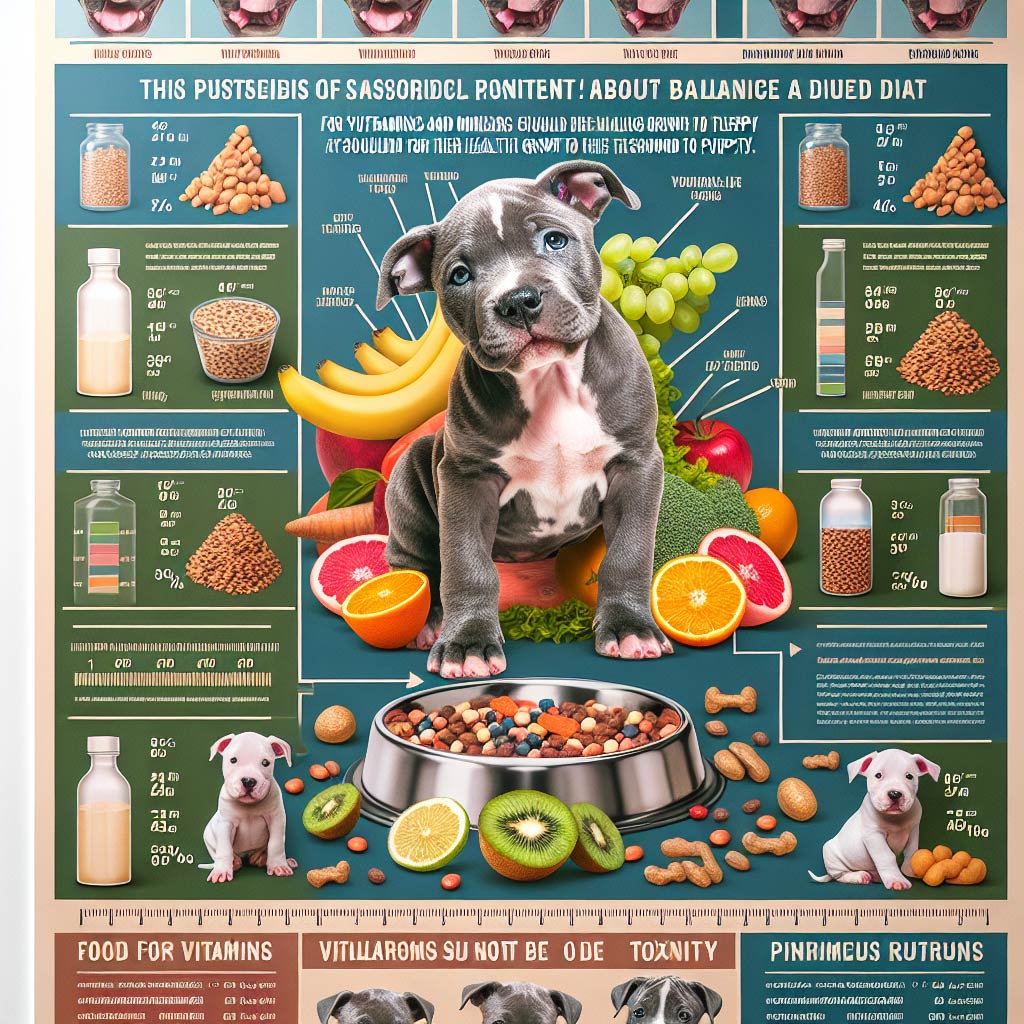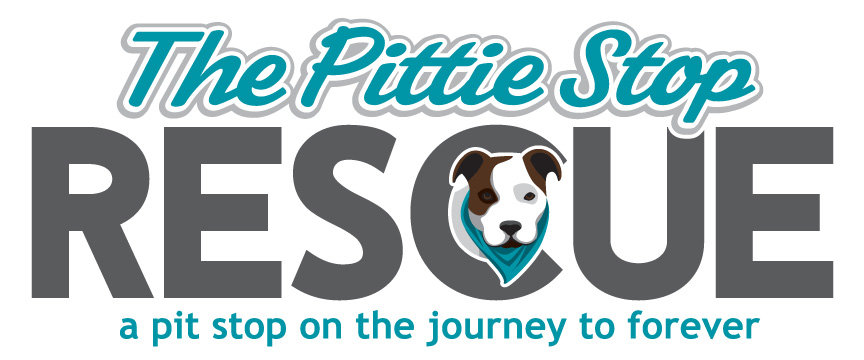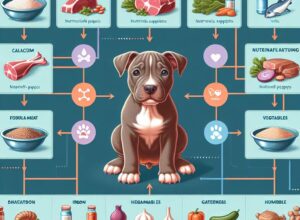
Pitbull Puppies and Proper Nutrition: Staying Safe
Raising a pitbull puppy is a journey filled with joy and responsibility. One of the most critical aspects of this journey is ensuring your pup’s diet is not just nutritious but also safe. It’s not uncommon to hear about the dangers lurking in some pet foods, where excessive vitamins and minerals can cause health issues. Let’s make sure your pitbull puppy grows up healthy, strong, and happy by avoiding these hidden dangers.
Key Takeaways
- Understand the unique dietary needs of pitbull puppies to promote optimal growth and health.
- Learn to identify and avoid foods that could cause vitamin and mineral toxicity.
- Discover the essential nutrients required for a pitbull puppy’s development.
- Recognize the signs of nutrient overdose to take swift action.
- Choose the right food and supplements with confidence, ensuring a well-balanced diet.
Fundamentals of Pitbull Puppy Nutrition
Feeding your pitbull puppy isn’t just about satisfying their hunger; it’s about building the foundation of their health. Your pup needs a balanced diet that supports their rapid growth and high energy levels. This means a combination of proteins, fats, carbohydrates, vitamins, and minerals in the correct proportions. But beware, the balance is delicate. Too little and your pup could miss out on vital growth; too much, and you risk toxicity.
Identifying Toxic Food Ingredients
When it comes to your pitbull puppy’s diet, not all ingredients are created equal. Some could even be toxic. It’s crucial to be vigilant about foods that contain excessive levels of certain vitamins and minerals. For instance, too much vitamin D can lead to serious health complications. Always check the labels and avoid foods that list additives or ‘meal by-products’ as primary ingredients. These can often be a source of hidden, harmful substances.
Vital Nutrients for your Pitbull Puppy’s Growth
As your pitbull puppy grows, they’ll need a range of nutrients to support their development. Protein is the building block of muscle, essential for a breed known for its strength. Fats provide energy and help absorb vitamins. Carbohydrates fuel their playful antics. But it’s the vitamins and minerals that often go unnoticed, yet they’re crucial for bone health, immune function, and overall vitality. Let’s make sure we get these in just the right amounts.
Essential Vitamins and Minerals
Your pitbull puppy needs a variety of vitamins and minerals to thrive. Vitamins such as A, B complex, C, D, E, and K are vital for vision, skin health, cell function, and bone growth. Minerals like calcium and phosphorus strengthen bones, while iron and zinc support the immune system. Remember, these nutrients should come primarily from your pup’s diet, with supplements only added under veterinary guidance.
Calcium and phosphorus are particularly important for pitbull puppies, who are known for their muscular build and need strong bones to support that muscle. However, the ratio of these minerals is just as important as the amount. An imbalance can lead to growth abnormalities.
Iron is crucial for healthy blood, and zinc plays a role in skin health and wound healing. Both are essential but often overlooked. Always check your puppy’s food to ensure it’s fortified with these key nutrients.
Recommended Dietary Allowances
Just like humans, dogs have recommended dietary allowances (RDAs) for each nutrient. The Association of American Feed Control Officials (AAFCO) provides guidelines for pet food manufacturers, but it’s up to you to understand these numbers. For pitbull puppies, protein should make up about 22% of their diet, and fat should be at least 8%. These are minimums; many high-quality puppy foods will exceed these numbers.
When it comes to vitamins and minerals, the AAFCO provides maximum levels as well. For example, the maximum amount of calcium for puppies is 2.5% on a dry matter basis. It’s essential to stick within these guidelines to prevent health issues related to over-supplementation.
Always consult with your vet to determine the right amounts for your specific puppy, especially since pitbulls can vary in size and activity level. This personalized attention ensures your pup gets just what they need for balanced growth.
Toxicity Trouble: Risks of Over-Supplementation
While we want to make sure our pitbull puppies get all the nutrients they need, there’s a fine line between enough and too much. Over-supplementation can lead to toxicity, with symptoms ranging from mild to life-threatening. Vitamins A and D, for example, are fat-soluble, which means they can accumulate in the body to dangerous levels if given excessively.
Mineral over-supplementation can also cause issues. Too much calcium can lead to skeletal problems. It’s crucial to avoid giving your pitbull puppy human vitamins or supplements. These products are formulated for human needs and can easily lead to an overdose in dogs.
Stick to dog-specific supplements, and even then, only under veterinary supervision. The best approach is always a well-balanced diet tailored to your puppy’s specific needs.
Signs of Vitamin Overload
Be on the lookout for signs that your pitbull puppy might be getting too many vitamins. Symptoms of vitamin A overload include dry skin, joint pain, and lethargy. Too much vitamin D can cause vomiting, weakness, and even kidney failure. If you notice any unusual symptoms in your puppy, especially after a dietary change, it’s crucial to consult your vet immediately.
When Minerals Become Too Much
Mineral toxicity can be just as harmful as vitamin overload. Excessive calcium intake, often from supplements, can lead to bone spurs and deformities. An overabundance of minerals like sodium can cause increased thirst and urination, potentially leading to more serious conditions like high blood pressure or heart disease.
Monitoring your pitbull puppy’s diet and being vigilant about the source and amount of their nutrients can prevent these dangerous conditions. Always discuss any supplements with your vet and opt for high-quality dog food that meets the AAFCO guidelines.
How to Choose a Well-Balanced Puppy Diet
Choosing the right diet for your pitbull puppy doesn’t have to be a guessing game. Start by selecting a high-quality dog food that’s specifically formulated for puppies. These foods are designed to support their rapid growth and development. Look for brands that use whole food ingredients without fillers like corn or wheat. The first ingredient should always be a high-quality protein source, such as chicken, beef, or fish.
Analyzing Dog Food Labels
Reading dog food labels can be like trying to understand a foreign language. But with a little know-how, you can become fluent. The ingredient list is ordered by weight, so those first few ingredients are what mainly make up the food. You want to see high-quality proteins and carbohydrates at the top. Also, pay attention to the guaranteed analysis, which shows minimum and maximum percentages of key nutrients like protein, fat, fiber, and moisture.
Remember, ‘by-products’ or ‘meals’ are not necessarily bad; they can be a concentrated source of protein. However, the source should be specified, like ‘chicken meal’ rather than just ‘meat meal.’ Transparency is key. Avoid foods with artificial colors, flavors, or preservatives like BHA, BHT, and ethoxyquin.
Whole Foods vs. Processed Foods
The debate between whole foods and processed foods isn’t just for humans. Whole foods for dogs are those that are minimally processed and as close to their natural state as possible. Think fresh, lean meats, and vegetables. Processed foods, on the other hand, often contain preservatives and fillers that offer little nutritional value and may lead to health issues down the line.
While whole food diets are ideal, they’re not always practical for every pet owner. If you go the commercial route, choose a processed food that’s as close to whole food as possible. Many high-quality commercial dog foods now include whole food ingredients and are formulated to provide a balanced diet without the need for additional supplementation.
Safeguarding Your Puppy’s Health with Regular Check-ups
Regular veterinary check-ups are non-negotiable when it comes to maintaining your pitbull puppy’s health. These visits are the perfect time to discuss your pup’s diet and any concerns you may have. Your vet can help you monitor your puppy’s growth and development, ensuring they’re on the right track nutritionally.
During these check-ups, your vet will also keep an eye out for any signs of vitamin or mineral toxicity. Early detection is crucial for preventing long-term health issues. They can also provide specific recommendations based on your puppy’s individual health needs.
Setting Up a Nutritional Plan with Your Vet
One of the best things you can do for your pitbull puppy is to work with your vet to create a tailored nutritional plan. This plan will consider your puppy’s age, weight, activity level, and any health concerns. Your vet can recommend specific types and brands of food, as well as any supplements that might be beneficial.
A nutritional plan isn’t set in stone; it should evolve as your puppy grows and their needs change. Regular check-ins with your vet will help you stay on top of these changes and adjust the diet as needed. This proactive approach is key to preventing nutritional imbalances and ensuring your pitbull puppy grows up to be a healthy and strong adult dog.
Monitoring Your Puppy’s Health
Keeping a close eye on your pitbull puppy’s health is essential. Regular monitoring helps catch any potential issues early on. Watch for changes in appetite, energy levels, and behavior, as these can be early indicators of nutritional imbalances or other health problems. Keep track of your puppy’s weight and growth with monthly measurements and compare them to breed-specific growth charts. And remember, a shiny coat, clear eyes, and a playful attitude are often signs of good health and proper nutrition.
Case Studies: Lessons from Real-Life Incidents
Learning from Past Pet Food Recalls
Real-life incidents have shown us the critical importance of careful dietary choices for our pets. For example, in 2007, a significant pet food recall was issued after dogs and cats suffered kidney failure due to contaminated wheat gluten from China. And more recently, in 2018 and 2019, several brands were recalled due to dangerous levels of vitamin D, which caused serious health issues in dogs. These incidents highlight the need for vigilance and choosing reputable brands that prioritize pet safety and quality control.
Understanding the Importance of Regulation in Pet Foods
Regulation in the pet food industry is crucial for ensuring the safety of our pets. Organizations like the FDA and AAFCO play a vital role in setting standards and guidelines for pet food manufacturers. Understanding these regulations can help you make informed decisions when selecting your pitbull puppy’s food. Look for brands that meet or exceed AAFCO’s nutrient profiles and that conduct rigorous quality control tests. This helps ensure the food you give your puppy is not only nutritious but also safe.
FAQ: Your Questions Answered
Got questions? You’re not alone. Here are answers to some of the most common queries pitbull puppy owners have about their furry friend’s diet.
What are the signs of vitamin toxicity in dogs?
Signs of vitamin toxicity can vary depending on the vitamin involved. For example, vitamin A toxicity may lead to dry skin, joint pain, and lethargy, while vitamin D toxicity can cause vomiting, diarrhea, and more severe issues like kidney damage. If you notice any sudden changes in your puppy’s health or behavior, contact your vet immediately.
Can human vitamins harm my Pitbull puppy?
Yes, human vitamins can be harmful to dogs. They are formulated for human needs and can contain doses that are too high for puppies, leading to toxicity. Always use pet-specific supplements and only under veterinary guidance.
How can I tell if my puppy’s food is AAFCO approved?
Check the pet food label for a statement that indicates the food is formulated to meet the nutritional levels established by the AAFCO Dog Food Nutrient Profiles. This statement is a good indicator that the food meets the basic nutritional requirements for dogs.
What steps should I take if I suspect my puppy has ingested toxic food?
If you suspect your puppy has eaten something toxic, act quickly. Contact your veterinarian or an emergency animal hospital right away. If possible, bring the packaging of the food your puppy ingested to help the vet determine the best course of action.
Is it safe to prepare homemade food for my Pitbull puppy?
While homemade food can be a healthy option for your puppy, it’s crucial to get the balance of nutrients right. Consult with a vet or a canine nutritionist to ensure your homemade diet meets all your puppy’s dietary needs and to avoid any nutritional deficiencies or excesses.
What are the signs of vitamin toxicity in dogs?
Recognizing the signs of vitamin toxicity can save your pitbull puppy’s life. Symptoms may vary, but there are common red flags to watch for. Excessive vitamin A can cause bone pain, lethargy, and constipation. Too much vitamin D might lead to vomiting, excessive drooling, and an abnormal heartbeat. If you notice your puppy has a decreased appetite, increased thirst and urination, or weight loss, these could be signs of toxicity and warrant immediate veterinary attention.
Can human vitamins harm my Pitbull puppy?
It’s crucial to understand that human vitamins are not suitable for puppies. The concentration levels are designed for adult human bodies and can be dangerously high for a young dog. Even small doses can lead to overdose symptoms in puppies. Stick to canine-formulated vitamins, and only if your vet has recommended them as part of a specific treatment plan.
How can I tell if my puppy’s food is AAFCO approved?
When you’re checking out puppy food options, look for the AAFCO statement on the packaging. It should say something like “formulated to meet the nutritional levels established by the AAFCO Dog Food Nutrient Profiles.” This means the food has either been tested in feeding trials or formulated to meet certain standards. However, it’s important to note that AAFCO sets minimum standards, so always aim for food that exceeds these requirements for optimal health.
What steps should I take if I suspect my puppy has ingested toxic food?
If you think your pitbull puppy has eaten something toxic, act fast. First, remove any remaining toxic food from reach. Then, call your vet or the Pet Poison Helpline immediately. Be ready to provide information about your puppy’s size, what they’ve eaten, and any symptoms they’re experiencing. Time is of the essence, so don’t wait for symptoms to appear before seeking help.
In conclusion, keeping your pitbull puppy safe from toxic levels of vitamins and minerals is all about balance and vigilance. By understanding their unique nutritional needs, reading labels carefully, and choosing high-quality foods, you can prevent the dangers of over-supplementation. Remember to watch for signs of toxicity and act quickly if you suspect a problem. With the right knowledge and attention to detail, you can ensure your pitbull puppy grows up healthy and strong. It’s not just about avoiding the bad; it’s about providing the very best for your furry friend.



